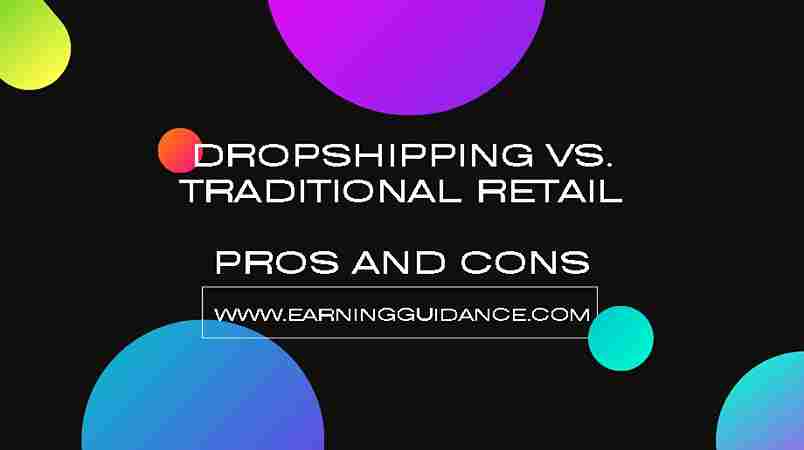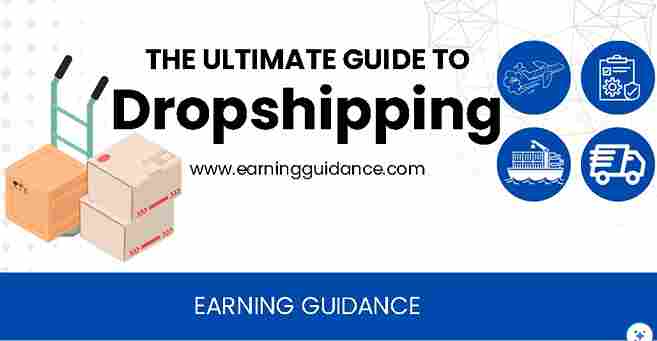Table Of Contents
- 1 Dropshipping Suppliers to Partner With
- 1.1 I. Introduction
- 1.2 II. Characteristics of a Reliable Dropshipping Supplier
- 1.3 III. Popular Dropshipping Supplier Directories
- 1.4 IV. Niche-Specific Supplier Networks
- 1.5 V. Researching and Vetting Dropshipping Suppliers
- 1.6 VI. Evaluating Supplier Pricing and Profit Margins
- 1.7 VII. Communication and Relationship Building with Suppliers
- 1.8 VIII. FAQs
- 1.9 IX. Conclusion
Dropshipping Suppliers to Partner With
I. Introduction
Dropshipping suppliers play a crucial role in the success of a dropshipping business. Partnering with reliable suppliers is essential for ensuring timely order fulfillment, maintaining product quality, and providing excellent customer service. In this article, we will explore the key characteristics of a reliable dropshipping supplier, popular dropshipping supplier directories, niche-specific supplier networks, and provide guidance on researching, vetting, and evaluating suppliers.
The Best Platforms and Tools for Successful Dropshipping
II. Characteristics of a Reliable Dropshipping Supplier
Reliable dropshipping suppliers play a vital role in the success of your dropshipping business. When choosing a supplier to partner with, it’s essential to consider certain key characteristics that ensure a smooth and profitable operation. Here are the important characteristics to look for in a dropshipping supplier:
- Product quality and variety: A reliable dropshipping supplier should offer high-quality products that meet or exceed customer expectations. Look for suppliers who provide detailed product descriptions, images, and specifications to ensure the quality matches your standards. Additionally, having a diverse range of products allows you to cater to a wider customer base and expand your product offerings.
- Timely order fulfillment and shipping: Efficient order processing and timely shipping are crucial factors in providing a positive customer experience. A reliable supplier should have a streamlined fulfillment process, ensuring that orders are processed promptly and shipped out within a reasonable timeframe. Look for suppliers who have reliable shipping methods and provide tracking information to keep your customers informed about their orders’ progress.
- Competitive pricing and profit margins: Pricing is a significant factor that affects your profit margins in dropshipping. It’s important to partner with suppliers who offer competitive wholesale pricing, allowing you to set competitive retail prices and maintain healthy profit margins. Consider suppliers who provide volume discounts or special promotions to help you maximize your profitability.
- Good customer service and communication: Clear and effective communication is essential for smooth collaboration with your dropshipping supplier. Look for suppliers who are responsive to inquiries, provide prompt and helpful assistance, and have dedicated customer support channels. Good communication ensures that any issues or concerns can be addressed promptly, reducing the risk of customer dissatisfaction.
- Flexible return and refund policies: Returns and refunds are part of any retail business, including dropshipping. It’s important to partner with suppliers who have fair and flexible return and refund policies. This allows you to handle customer returns smoothly and provide excellent customer service. Check if the supplier offers clear guidelines for returns, warranties, and any associated costs to ensure a hassle-free process for both you and your customers.
By considering these characteristics when selecting your dropshipping suppliers, you can build a strong and reliable network that supports your business growth and customer satisfaction. Conduct thorough research, read reviews, and reach out to potential suppliers to assess these characteristics and make informed decisions. Remember, the reliability and performance of your suppliers directly impact your reputation and success as a dropshipper.
Finding the Perfect Niche for Your Dropshipping Store
III. Popular Dropshipping Supplier Directories
When searching for reliable dropshipping suppliers, popular dropshipping supplier directories can be valuable resources. These directories connect dropshippers with suppliers, providing access to a wide range of products and suppliers in various industries. Here are three popular dropshipping supplier directories worth exploring:
- Worldwide Brands: Worldwide Brands is one of the leading supplier directories in the dropshipping industry. They have an extensive database of certified suppliers and millions of products across different categories. Worldwide Brands offers a comprehensive directory with reliable and verified suppliers, ensuring the quality and legitimacy of the suppliers listed. They also provide valuable resources and educational materials to help dropshippers succeed in their businesses.
- SaleHoo: SaleHoo is another reputable supplier directory that connects dropshippers with verified suppliers. They offer a directory of over 8,000 trusted suppliers and a wide range of products. SaleHoo conducts regular supplier vetting to ensure reliability and provides valuable market research tools to help users identify profitable niches and products. They also have an active community forum where dropshippers can connect and share insights.
- Oberlo: Oberlo is a popular dropshipping supplier directory specifically designed for Shopify users. It seamlessly integrates with the Shopify platform, allowing dropshippers to easily add products from various suppliers to their online stores. Oberlo provides access to millions of products, and suppliers are carefully vetted for reliability and quality. It offers features such as automated order fulfillment and real-time inventory updates, streamlining the dropshipping process for Shopify store owners.
These popular dropshipping supplier directories offer a wide selection of products and verified suppliers, making it easier for dropshippers to find reliable partners. They provide valuable tools, resources, and support to help streamline the supplier selection process and ensure a smooth dropshipping experience. By exploring these directories, dropshippers can discover reputable suppliers that align with their business needs and product preferences.
Note: Make sure to visit the respective websites of these directories for more information and to explore their offerings in detail.
IV. Niche-Specific Supplier Networks
In addition to general dropshipping supplier directories, niche-specific supplier networks are also worth considering for finding reliable suppliers that cater to specific industries or product categories. These networks specialize in connecting dropshippers with suppliers who offer niche products, allowing for more targeted and specialized dropshipping businesses. Here are three niche-specific supplier networks that can be beneficial:
- Spocket: Spocket is a niche-specific supplier network that focuses on connecting dropshippers with suppliers offering high-quality products from the United States and the European Union. They have a wide range of products across various categories, including fashion, home decor, electronics, and more. Spocket offers a curated list of suppliers that undergo strict vetting processes to ensure reliability and product quality. They also provide features such as one-click product imports, automated order fulfillment, and branded invoicing.
- Printful: Printful is a niche-specific supplier network that specializes in print-on-demand products. They offer a wide range of customizable products, including apparel, accessories, home decor, and more. Printful integrates seamlessly with popular e-commerce platforms like Shopify and WooCommerce, making it easy for dropshippers to create and sell their custom products. They handle the printing, packaging, and shipping processes, allowing dropshippers to focus on marketing and growing their businesses.
- Doba: Doba is a niche-specific supplier network that focuses on connecting dropshippers with suppliers offering a variety of products across different categories. They provide a curated list of wholesale suppliers who offer dropshipping services. Doba’s platform offers product data and inventory management tools, making it easier for dropshippers to manage their product listings and track inventory levels. They also provide real-time product updates and support services to assist dropshippers in their business operations.
These niche-specific supplier networks cater to specific product categories or industries, allowing dropshippers to find suppliers who specialize in their chosen niches. By leveraging these networks, dropshippers can access a targeted selection of high-quality products and reliable suppliers, ensuring a seamless dropshipping experience within their niche.
Dropshipping vs. Traditional Retail: Pros & Cons
Note: To explore these niche-specific supplier networks further and gain more insights, it is recommended to visit their respective websites and review their offerings, supplier directories, and integration capabilities.
V. Researching and Vetting Dropshipping Suppliers
Researching and vetting dropshipping suppliers is a crucial step in finding reliable and trustworthy partners for your dropshipping business. By conducting thorough due diligence, you can ensure that you’re working with suppliers who meet your quality standards and can provide a seamless experience for your customers. Here are the steps to research and vet potential dropshipping suppliers effectively:
- Check supplier reviews and ratings:
- Look for reviews and ratings on supplier directories, forums, and social media platforms.
- Pay attention to both positive and negative feedback from other dropshippers to get a comprehensive understanding of the supplier’s reputation.
- Evaluate their product catalog and quality:
- Assess the variety and range of products offered by the supplier.
- Look for product images, descriptions, and specifications to ensure they align with your target market and meet your quality standards.
- Consider requesting product samples to assess their quality firsthand.
- Assess their shipping methods and delivery times:
- Understand the supplier’s shipping processes and logistics.
- Evaluate their shipping methods, such as courier services or shipping carriers, to ensure timely and reliable delivery to your customers.
- Consider their shipping times and if they align with your customers’ expectations.
- Contact suppliers and ask relevant questions:
- Reach out to potential suppliers to ask specific questions about their products, order fulfillment processes, and customer support.
- Inquire about their response time, available communication channels, and their willingness to address concerns promptly.
- Ask about their policies regarding returns, refunds, and product warranties.
- Consider their pricing and profit margins:
- Evaluate the supplier’s pricing structure and compare it to market rates.
- Calculate the potential profit margins by factoring in wholesale prices, shipping costs, and other expenses.
- Ensure that the supplier’s pricing allows for competitive pricing and profitability in your dropshipping business.
- Verify their business legitimacy:
- Check if the supplier is a registered business entity.
- Verify their contact information, such as their physical address, email, and phone number.
- Look for any red flags or inconsistencies that may indicate potential scams or unreliable suppliers.
By following these steps, you can gather essential information and insights to make an informed decision when selecting dropshipping suppliers. Remember to conduct thorough research, compare different options, and prioritize suppliers who meet your criteria for product quality, reliability, and communication.
Note: It’s recommended to visit the websites or contact the suppliers directly to gather more information and verify their credentials before partnering with them.
VI. Evaluating Supplier Pricing and Profit Margins
Evaluating supplier pricing and profit margins is a crucial aspect of running a successful dropshipping business. It’s essential to ensure that the pricing offered by your suppliers allows for competitive pricing in the market while maintaining a healthy profit margin for your business. Here are some factors to consider when evaluating supplier pricing and calculating profit margins:
- Wholesale pricing and discounts:
- Review the supplier’s wholesale pricing structure and determine if it aligns with your target market and desired profit margins.
- Inquire about any available discounts for bulk orders or ongoing partnerships.
- Compare the wholesale pricing offered by different suppliers to find the most competitive rates.
- Shipping costs and fees:
- Take into account the shipping costs charged by the supplier for each order.
- Assess if the shipping fees are reasonable and competitive compared to other suppliers in the market.
- Consider the impact of shipping costs on your overall pricing strategy and profit margins.
- Additional expenses like packaging and labeling:
- Factor in any additional expenses associated with packaging, branding, and labeling of the products.
- Evaluate if the supplier offers options for customized packaging or if there are additional costs involved.
- Consider the impact of these expenses on your pricing and profit margins.
- Currency exchange rates and transaction fees:
- If you’re working with suppliers from different countries, consider the impact of currency exchange rates on your pricing and profit margins.
- Account for any transaction fees or currency conversion charges that may affect your overall costs.
- Competitive analysis:
- Conduct a competitive analysis to understand the pricing strategies of other dropshippers and online retailers in your niche.
- Compare your supplier’s pricing with that of your competitors to ensure you can offer competitive prices to your customers while maintaining profitability.
- Profit margin calculations:
- Calculate your profit margin by subtracting the cost of goods sold (including wholesale pricing, shipping costs, and additional expenses) from the selling price.
- Consider the desired profit margin percentage that aligns with your business goals and market dynamics.
- Regularly review and adjust your pricing strategy to ensure it remains profitable and competitive.
- How to Start a Profitable Dropshipping Business from Scratch
Remember that evaluating supplier pricing and profit margins is an ongoing process. As your business grows and evolves, you may need to revisit and negotiate pricing with your suppliers to maintain a healthy profit margin. Additionally, keep in mind that pricing is just one aspect of supplier evaluation, and it’s important to consider other factors such as product quality, reliability, and customer service when making partnership decisions.
Note: It’s recommended to visit the websites or contact the suppliers directly to gather more information about their pricing structure and negotiate terms if needed.
VII. Communication and Relationship Building with Suppliers
Building strong relationships and maintaining effective communication with your dropshipping suppliers is essential for a successful and sustainable business. When you establish a positive and collaborative relationship with your suppliers, it can lead to smoother operations, better support, and potential growth opportunities. Here are some strategies for communication and relationship building with your suppliers:
- Set clear expectations: Clearly communicate your expectations regarding product quality, shipping times, and any specific requirements you have for packaging or labeling. Ensure that your suppliers understand your standards and are capable of meeting them.
- Establish regular communication channels: Maintain open lines of communication with your suppliers to stay updated on order statuses, inventory availability, and any potential issues. Determine the most convenient and efficient communication channels for both parties, such as email, phone, or dedicated supplier portals.
- Provide feedback and address concerns: Regularly provide feedback to your suppliers, both positive and constructive, to help them understand your needs and improve their performance. Address any concerns or issues promptly to resolve them in a timely manner. A proactive and collaborative approach can strengthen the relationship.
- Collaborate on product improvements: Engage in discussions with your suppliers about potential product improvements, new product ideas, or modifications based on customer feedback. Collaboration can lead to mutually beneficial product enhancements and better customer satisfaction.
- Negotiate terms and agreements: As your business grows, revisit your agreements with suppliers to negotiate better terms, such as volume discounts, exclusivity agreements, or priority access to new products. A mutually beneficial partnership can incentivize suppliers to provide exceptional service and support.
- Attend industry trade shows and events: Participate in industry trade shows and events where you can meet suppliers face-to-face, establish personal connections, and learn about new products or trends in your niche. Building relationships in person can strengthen trust and open up new opportunities.
- Consider supplier loyalty programs: Inquire about any loyalty programs or incentives offered by your suppliers. These programs may provide benefits such as discounted pricing, priority support, or early access to new products, further strengthening your relationship.
- Maintain professionalism and respect: Treat your suppliers with professionalism, respect, and fairness. Timely payments, clear communication, and transparent business practices contribute to a positive and mutually beneficial partnership.
Remember, effective communication and relationship building is a two-way process. It’s important to be responsive, respectful, and understanding of your suppliers’ needs as well. By nurturing strong relationships with your dropshipping suppliers, you can establish a reliable and supportive network that contributes to the long-term success of your business.
10 Essential Dropshipping Tips for Beginners
Note: It’s recommended to visit the suppliers’ websites or contact them directly to learn about their communication preferences and establish the most suitable channels for ongoing collaboration.
VIII. FAQs
Q1: How do I find reliable dropshipping suppliers? A1: Reliable dropshipping suppliers can be found through popular directories like Worldwide Brands, SaleHoo, and Oberlo. Conduct thorough research, read reviews, and vet potential suppliers before partnering with them.
Q2: What are the key factors to consider when choosing a dropshipping supplier? A2: When selecting a dropshipping supplier, consider factors such as product quality, order fulfillment speed, pricing, customer service, and return policies.
Q3: How can I ensure timely order fulfillment and shipping? A3: Partnering with suppliers known for their prompt order processing and efficient shipping methods is crucial. Communicate your shipping expectations clearly and confirm their capabilities beforehand.
Q4: How do I evaluate the quality of products from potential suppliers? A4: Research supplier reviews and ratings, request product samples, or place a test order to assess the quality of products from potential suppliers.
Q5: Can I partner with multiple dropshipping suppliers? A5: Yes, partnering with multiple dropshipping suppliers allows you to diversify your product offerings, access a wider range of products, and mitigate risks associated with relying on a single supplier.
IX. Conclusion
Partnering with reliable dropshipping suppliers is a fundamental aspect of running a successful dropshipping business. By considering the characteristics of a reliable supplier, exploring popular directories, and niche-specific networks, conducting thorough research, and fostering strong relationships, you can ensure a streamlined and profitable dropshipping operation. Take the time to find trustworthy suppliers that align with your business goals and provide quality products and services. With diligent supplier selection, you can set your dropshipping store up for long-term success.













One thought on “Top Dropshipping Suppliers to Partner With”